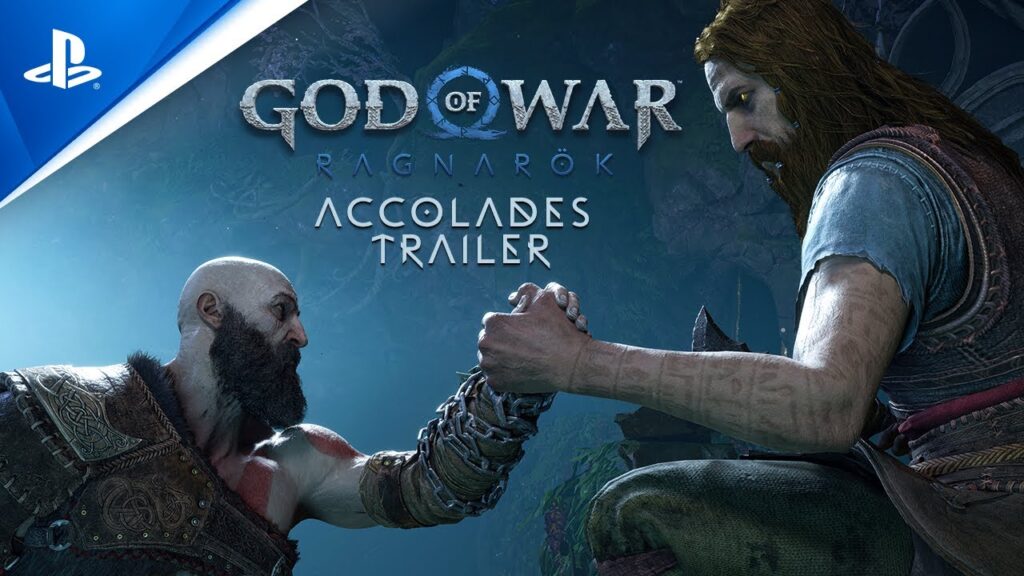Sony Santa Monica's God of War was a masterclass in emotional storytelling, offering character development and a moving fatherhood story wrapped in the trappings of one of the most violent game series ever made. The sequel, in this God of War Ragnarök Game ReviewCould he beat him? I'd say yes, although it took an unorthodox route to do so. It's at least as good as its predecessor, despite having the same gameplay and story peccadilloes.

God of War Ragnarök Game Review
Just as a warning, this review will contain a very mild spoiler story - I'm not talking about anything important, but I can't go into certain aspects of the game without spoilers. There are several moments in the story and the characters that I can't even talk about for fear of spoiling the experience, but suffice to say that there's a lot going on in God of War Ragnarök.
The end of the world as we know it
In this adventure, teenagers Atreus and Kratos face the consequences of their actions in the previous game. Fimbulwinter, the climatic cataclysm that precedes Ragnarök, begins when the two receive a hostile visit from none other than Thor and Odin. Forget the affable mythological Norse gods: in this game, Thor is a violent and abusive bully, and Odin behaves with all the predatory cordiality of a mafia boss.
Following this little dust-up, Kratos and Atreus must decide what role, if any, they will play in the Norse apocalypse - and, in a bittersweet metaphor for coming of age, their decisions lead them down separate paths. This means that both are playable, as each follows their own journey of discovery, with companion characters and distinct skill sets.
There is a theme of destiny - not just whether it can be changed, but whether it exists. Atreus spends most of the game trying to figure out what role his character "Loki" will play in the fate of the world, but others point out that the only reason he's taking part is because he's been told so. prophecy. Kratos, on the other hand, abjures destiny not because he fears the future, but because he fears facing the past that brought him there.
Melancholy
There's something melancholy about the early parts of the game, where it becomes clear that Atreus is growing up and needs his father's help less. The first time I went to climb a wall and Atreus didn't jump on Kratos' back, I was more than a little sad. The "ox" grows up, and this bit of gameplay is just a taste of what we'll experience in the rest of the story. Kratos, like me, spends most of the story learning to let Atreus grow into his own person. It's the right thing to do, but it's still hard for both of us.
The story unfolds exceptionally well, with players seeing things from the perspective of the stubborn, headstrong Atreus and the dark, tormented Kratos. It's easy to see where they're both coming from - and it's amazing that the game managed to make me sympathize with Atreus, who throws what can charitably be described as a fit of teenage rage around the midway point that completely changes the direction of the story.
In addition to the two protagonists, the supporting characters - new and old - are all exceptionally well done. These include Tyr, an ancient god of war, broken by experience; Freya, violent and unbalanced after the death of her son; Angrboda, Atreus' lovely new accomplice; and, of course, Sindri and Brok, who focus more on the story than before. My favorite was Heimdall, who here resembles Hermes from the original series more than his mythological counterpart, both in his energetic appearance and his insufferably smug attitude. I loved to hate him.
Gameplay
The gameplay seems much faster and sharper, for lack of a better way of putting it. Kratos' weapons hit with more precision and force, although his actual damage has decreased since the end of the previous game. He also has more varied enemies to fight - there are the usual two-legged types, but there are also scary creatures, creatures and ghosts to add to the rogues' gallery. It feels a little closer to God of War Classic than God of War 2018.
The gameplay is well balanced between combat, puzzles and story. The environmental puzzles are more complex and varied than they were at the start of the last game, especially as Kratos has two weapons at his disposal (to begin with). Sometimes the gameplay feels a little safe - it doesn't innovate much. I don't necessarily think that's the case, because the game's comforting rhythm of violence and discovery is part of its charm. But still, if you weren't a fan of the combat in the last game, this one probably won't appeal to you.
One of my complaints with God of War 2018 was that it replaced the fixed third-person hack-and-slash camera with a Last of Us-style over-the-shoulder perspective in a huge, tedious arena. As much as I love the character of Mimir, I thought the solution of literally putting a pair of eyes on Kratos' back to call out attacking enemies with a blocked perspective was a bit ridiculous.
See also: Steelrising Game Review; see all about the game
Graduated in Languages - Portuguese/English, creator of the Successful WriterHe also writes for Great App, expanding the knowledge of all technology lovers through movie and series reviews, game reviews and the main news of the moment.